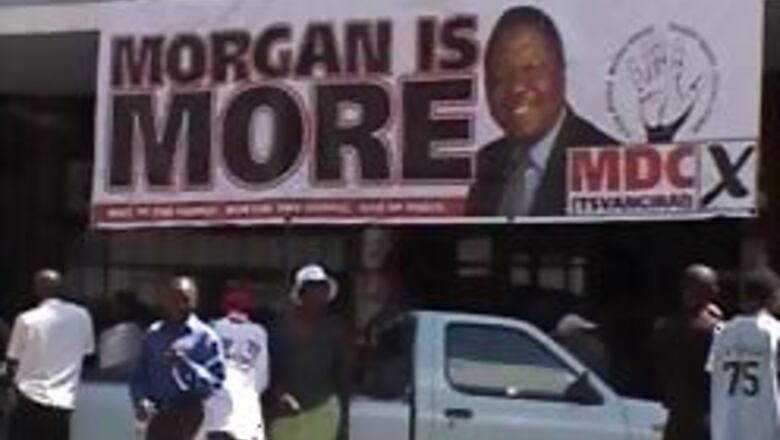
views
New York: The UN Security Council Monday condemned the Zimbabwean government's violence against President Robert Mugabe's political opponents, saying that the abused will make it impossible for this week's run-off election to be free and fair.
The Security Council said that for a future government in Zimbabwe to be legitimate, the regime "must respect the interests of all its citizens" and take into account the March parliamentary election, in which opposition parties defeated Mugabe's ZANU(PF) party.
The statement said that the Security Council condemns the Zimbabwean government's actions "including political intimidation, restrictions on the right of assembly and detention of political leaders, which have denied its political opponents the right to campaign freely."
It charged that the violence has left "scores" of opposition activists dead and included "beating and displacement of thousands of people, including many women and children."
The final statement issued by the council followed hours of closed-door deliberations and was slightly watered down from a previous draft earlier Monday. The earlier version would have declared as legitimate the results of the first-round presidential vote on March 29, if the runoff were cancelled.
The runoff is scheduled for Friday, but African leaders have called for a postponement because of the violence against opposition figures.
UN Secretary General Ban Ki-moon, siding with African groups and leaders, called Monday on Zimbabwe to postpone the runoff until conditions exist for a free and fair presidential election.
The final statement called on Zimbabwean authorities to "cooperate fully with all international efforts, including through the UN, aimed at finding a peaceful way forward, through dialogue between the parties, that allows a legitimate government to be formed that reflects the will of the Zimbabwean people."
It called for ending violence and the release of political leaders in detention and sought international monitors and observers to remain in Zimbabwe while the crisis continues.
The statement called on Harare to allow the resumption of relief assistance by non-governmental organizations, whose activities were suspended in early June.
The debate revived a clash between Western countries, which want the Security Council to show responsibility for the civilian population caught up in the violence, and China, which holds that the council should not interfere in a nation's internal affairs.
US Ambassador Zalmay Khalilzad, who is serving as council president in June, and French Ambassador Jean-Maurice Ripert said earlier Monday that the worsening conditions in Zimbabwe were created by Mugabe and his supporters.
"The situation in Zimbabwe is not the result of an act of nature, like the natural disaster in Burma (Myanmar)," Khalilzad said. "The government of Zimbabwe caused the problems, and, in my view, we have to assign the blame and take action."
When Cyclone Nargis struck Myanmar in early May, China strongly opposed the Security Council's involvement in humanitarian assistance to the impoverished South-East Asian nation. Western countries on the Security Council invoked the UN responsibility to protect civilians, but China insisted that such responsibility does not extend to natural disasters.
Khalilzad and Ripert said that one country also opposed the UN responsibility to protect the civilian population in the case of Zimbabwe's humanitarian situation, which they said is man-made. The diplomats did not name that country.

















Comments
0 comment